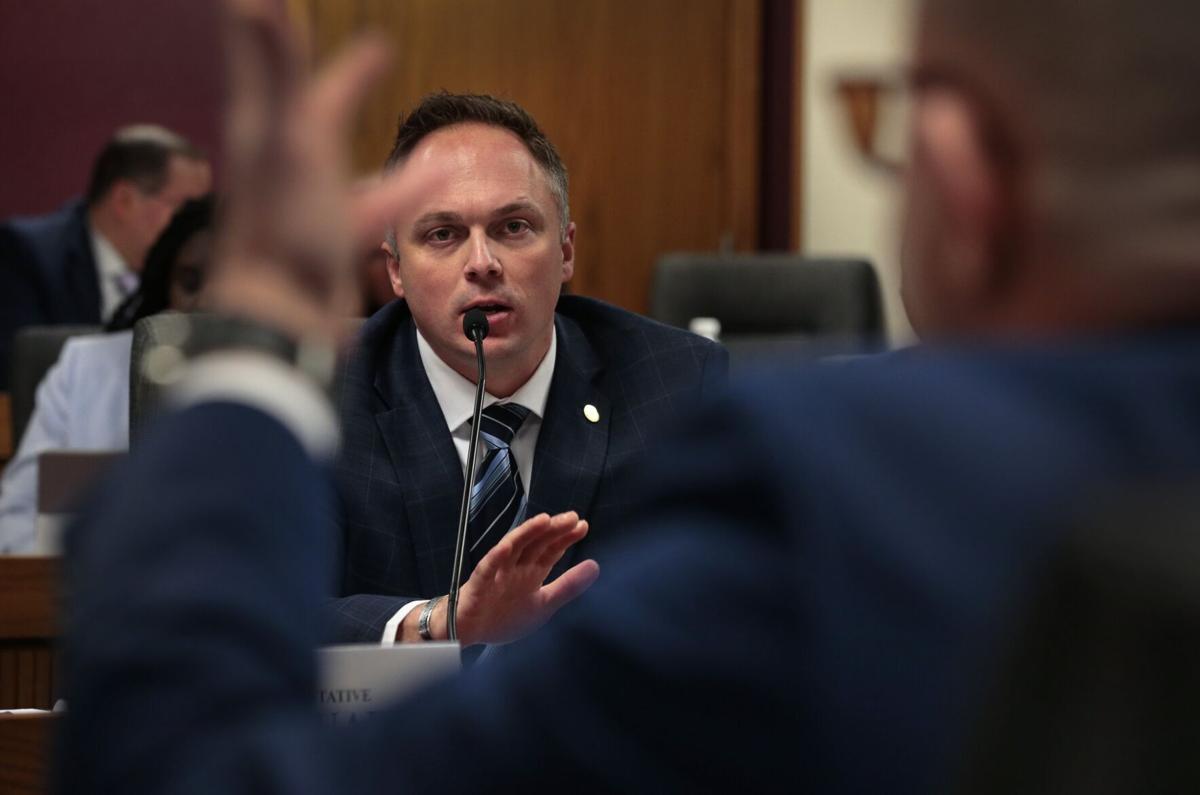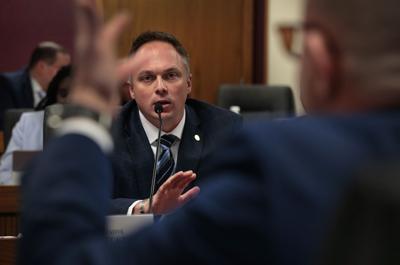JEFFERSON CITY â Missouri lawmakers will soon consider one Republicanâs plan to block taxpayer-funded reparation initiatives, potentially setting up a showdown with the city of St. Louis as local officials debate monetary payments for past slavery and racism.
Rep. Justin Sparks, a Republican from Wildwood, filed a proposal ahead of the new legislative session banning taxpayer-paid reparations âon the basis of race, religion, gender identity, sexual orientation, or economic class.â
Sparks said his measure is partially a reaction to discussion of possible monetary reparations in St. Louis. He added he was also responding to âthe attempt by those in power to use an issue like race to further their own agenda by dividing one group of people against another. Itâs wrong.â
Sparksâ measure could gain more attention as a commission Mayor Tishaura O. Jones created last year to study reparations for slavery and anti-Black discrimination prepares to make recommendations in the new year.
People are also reading…
Throughout public meetings, residents have encouraged the commission to call for cash payments to make amends for past actions.
St. Louis Alderman Rasheen Aldridge, a former state representative elected to the Board of Aldermen this year, said a good conversation was happening in the city about why reparations are important and how funds can be used in historically disinvested communities.
âWhen you uplift one community, itâs going to ultimately benefit all of us,â Aldridge said.
But itâs unclear whether the commission will call for, and whether Jones would support, monetary payments for reparations.
âWe will revisit the discussion once they provide their study and recommendations,â said Nick Dunne, spokesman for Jones.
Asked about Sparksâ proposal, Dunne said the mayorâs office doesnât comment on proposals filed ahead of the upcoming legislative session, which begins Jan. 4.
Discussions of reparations for historical injustices have gained steam in recent years, with left-leaning cities and states such as California and New York taking the lead on the issue.
But in Missouri, the conservative state Legislature has been active in pushing back against liberal cities. Sparksâ bill is the latest continuation of that theme.
Past state laws range from nixing a locally approved minimum wage in St. Louis in 2017 to barring local firearm restrictions and banning local taxes on plastic grocery bags.
Not every attention-grabbing measure that restricts cities ultimately becomes law.
More recently, Republican lawmakers backed away from moves to appoint a special prosecutor for St. Louis, and to place the police department under state control.
Accusations of racism factored into debate this year on the special prosecutor, as Republicans prevented Black Democrats from speaking on the measure to partially dislodge the cityâs first Black circuit attorney.
Republicans last session also retreated from efforts to bar state spending on diversity, inclusion and equity initiatives, and to restrict history lessons on race, amid deep resistance from Democrats.
The terms âreparationsâ and âtaxpayer dollarsâ are not defined in Sparksâ two-sentence proposal, which is likely to be amended if House GOP leadership decides to advance it.
Rep. Jim Murphy, a south St. Louis County Republican, said he would have to examine Sparksâ bill before deciding whether to support it.
âIâd have to look at the details,â Murphy said. âGenerally speaking, Iâm in favor of taxpayer money staying for the purpose that itâs collected, which is to give services to all the taxpayers involved.â
Rep. Brad Christ, R-south St. Louis County, in a statement criticized the St. Louis reparations commission and said he had not read Sparksâ bill.
âInstead of wasting their time and taxpayer resources on this, the mayor and her political allies should be focused on modernizing the cityâs outdated tax code and combatting crime,â Christ said.
Even though St. Louis leaders are now considering reparations, officials took a âfirst stepâ in that direction in 2022 when Jones signed legislation creating a voluntary reparations fund.
City residents are able to donate to the reparations fund by adding to their annual property tax bills or quarterly refuse and water bills.
The balance as of Tuesday stood at $1,399 and no disbursements had been made, according to the city comptrollerâs office.
The legislation is Hous
A group of about 45 people, most of them white, marched Saturday morning up South Grand Boulevard and held a rally at the northeast corner of Tower Grove Park as part of the March for Reparations, which took place in five cities across the country.















